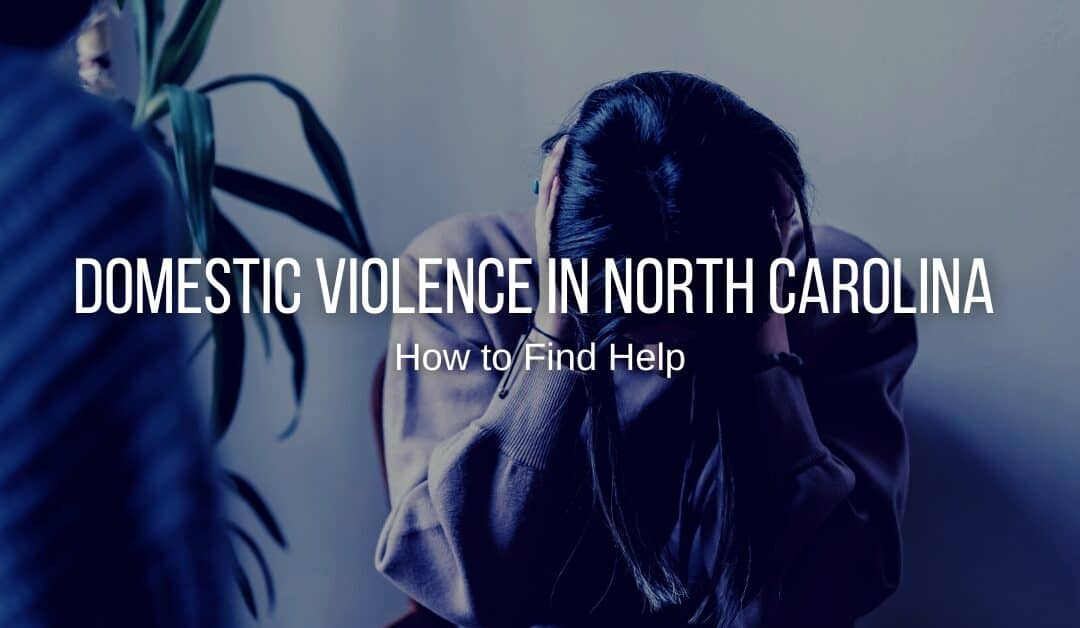If you’re dealing with domestic violence in North Carolina, knowing your options is essential. You may feel scared, alone, or helpless, but help is available. This blog post will discuss the steps you can take to get yourself and any children to safety. Keep in mind that domestic violence is never okay, and it’s crucial to reach out for help if abuse occurs in your home.
What is Considered Domestic Violence in North Carolina?
Relationships can be complex, and arguments happen. However, if family members get out of control and engage in behavior to control another person with abuse or threats, this is legally defined as violence.
North Carolina law is clear about what domestic violence is. There is a legal definition that includes acts of:
- Attempting to cause bodily injury
- Intentionally causing bodily injury
- Placing you or your child in fear of imminent serious bodily injury
- A sexual offense such as rape or sexual assault, or battery
- Continued harassment and stalking if causing you substantial emotional distress
If you report that a person in your home is making threats, intimidating you, or using physical violence, the police may charge that person with a crime. Violent acts are crimes, whether physical force or emotional intimidation.
However, even if an officer of the law doesn’t charge the abusive person with a crime, you still have legal options to get help for yourself and any children.
Finding Help for Domestic Violence
Domestic violence situations include very specific types of relationships. You can get a Domestic Violence Protective Order (DVPO or 50B filing) if you’re in a “personal relationship” with someone abusive.
North Carolina defines a “personal relationship” as a:
- Current or former spouse
- Persons of opposite sex who live together or have lived together
- Someone you’re related to as parents and children, including others acting in loco parentis to a minor child, or as grandparents and grandchildren. However, you can’t get a 50B against a child or grandchild under the age of 16
- A person you have a child in common
- Current or former household members
- A dating relationship where you’re romantically involved over time. A casual acquaintance in a business or social context is not a dating relationship
As a domestic violence victim, you can file a DVPO in your county courthouse. A DVPO restraining order gives you and any children or pets a form of protection.
What Can a Domestic Violence Protective Order Do?
Once you file a DVPO, the judge determines if an act of violence occurred. You don’t need proof to get an emergency order for protection, often called an ex parte order. However, the judge will hold a hearing 10 days later to look at evidence from both you and the abusive person.
Once the judge grants an immediate protective or ex parte order, you receive an emergency order giving you the protections of a DVPO. If the judge grants a permanent DVPO, it will last a year, and you may renew it before it expires.
Domestic Violence Protective Orders (DVPO) include protections such as:
- Ordering an abuser to have no contact with you, any minor children, and other family or household members
- Giving you possession of the home and excluding the abusive partner
- Awarding you temporary child custody
- Ordering eviction of the abusive partner from your residence
- Assistance for you to return home
- Ordering abusive partner to pay temporary child support for minor children (if required by law)
- Giving you possession of the combined personal property
- Giving you temporary physical custody of a pet or minor child
- Awarding you attorney fees
- Ordering additional requirements necessary to protect you and others
- Prohibiting the abusive person from purchasing a firearm
- Ordering sheriff to deliver protective order to kids’ school principals
- Ordering the abusive partner to attend and complete an abuser treatment program approved by the Domestic Violence Commission
If the abusive individual breaks the DVPO, they can face arrest on the spot. If you feel cornered as a victim of abuse, filing a DVPO can help you begin to find your way out of the abusive situation.
When Domestic Violence Becomes Homicide
Because violence often escalates into more than abuse, it’s crucial to find the help you need now. In North Carolina alone, there were 148 victims of domestic violence-related homicide in 2021. Only 4 of those victims had taken out a protective order. (1)
While a protective order is a good first step, local domestic violence agencies serve all 100 counties across North Carolina and can help you find more help. They offer 24-hour confidential crisis hotlines, emergency shelter, support groups, and counseling. The North Carolina Coalition Against Domestic Violence can help you find shelter and services from these agencies.
You can also call the National Domestic Violence Hotline open 24/7 offering English, Spanish, and 200+ other languages through an interpretation service at 800-799-7233.
Our Experienced Domestic Violence Attorneys Can Help
At Plekan Law, we’ve seen first-hand how domestic violence can bring destruction in a family. Our experienced DVPO attorneys provide representation and advice during this difficult time. We can also work with you to file an ex parte order or DVPO to protect yourself and any loved ones from future harm.
If you or a loved one is facing domestic violence, don’t hesitate to get help. Reach out to our team of experienced DVPO attorneys today to learn more about your legal rights and options. We are here to help you find answers and ways to move forward with your life!

